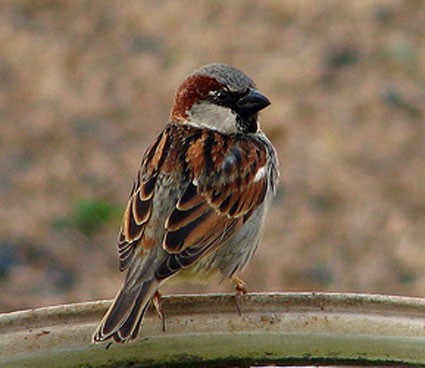There is a quirk in the behavior of male House Sparrows that helps this species compete so successfully with native birds.
House Sparrows have a weak pairbond, meaning they don’t form significant attachments to their mates. The bond that seems to be stronger is the male bird’s attachment to a chosen nesting site. The male sparrow falls in love with his house, not his favorite girl.
Understand this concept and you realize that the commonly recommended means of sparrow control (removing nest and eggs) will not deter the male. The lack of success in using this method often frustrates people who are trying to attract bluebirds and other cavity-nesting species.
This bonding behavior is not typical of native bird species. If a bluebird or a chickadee nest containing eggs is disturbed or vandalized, the pair usually leaves the area. The same seems to be true for Tree Swallows and other cavity-nesting birds.
The male House Sparrow, however, will continue to stay in the area even after the female has left following destruction of her nest and eggs. The male sparrow must be removed from the area if the problem is to be sloved.
— Winter 2002 issue of Bluebird

